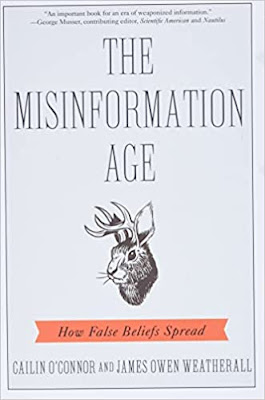The Dewey Decimal System has a national day. Who knew? Not I. I was putting together my usual Sunday Salon post, happened upon this illustration, and decided to write about it because of that third column. Yeah, take time to read it; click to enlarge the photo. Here's an illustration that "proves" next Saturday is Dewey Decimal System Day:
When my children were little, I used to take them once or twice a week to the public library on McCallie Avenue in Chattanooga. That was long before the "new" library was built on Broad Street, where one of my girls worked when she grew up. Anyway, the children's books were on the lowest level and mine were on the next floor up. They were eventually so well-known by the librarians and so familiar with their department, that I was able to leave them to browse while I went upstairs to find some books for myself.
It reached the point that they would come and find me when they were ready to go home. And they knew exactly WHERE to find me. I'd be in the 100s and 200s section. Can you tell that my first degree was in Philosophy and Religion? Well, that degree actually became a double major, when I expanded into the 800s and added English Language and Literature. Here's part of my library loot that reflects a current interest:
The Misinformation Age: How False Beliefs Spread ~ by Caitlin O'Connor and James Owen Weatherall, 2019, psychology, 280 pages
Why should we care about having true beliefs? And why do demonstrably false beliefs persist and spread despite bad, even fatal, consequences for the people who hold them? Philosophers of science Cailin O’Connor and James Weatherall argue that social factors, rather than individual psychology, are what’s essential to understanding the spread and persistence of false beliefs. It might seem that there’s an obvious reason that true beliefs matter: false beliefs will hurt you. But if that’s right, then why is it (apparently) irrelevant to many people whether they believe true things or not?The Misinformation Age, written for a political era riven by "fake news," "alternative facts," and disputes over the validity of everything from climate change to the size of inauguration crowds, shows convincingly that what you believe depends on who you know. If social forces explain the persistence of false belief, we must understand how those forces work in order to fight misinformation effectively.
It's a library book, so I'm calling it "library loot" for this "Sunday Salon" post. Use the chart above or the one below to try to figure out what category it's in. What do you think? I decided "psychology" sounds about right to me. My library lists it as 153.74
I want to share one more thing: I was very surprised when I read the Wikipedia article List of Dewey Decimal classes that many are shown as "Not assigned or no longer used." Hmm, this ole world is in even more flux than I realized. (Flux = defined as "continuous change or movement.")
I'll spend next Saturday (Dewey Decimal System Day) reading. What about you?





10 comments:
I especially like the 3rd column about the 300s: "Who's the guy in the next cave?" Which is your favorite?
I got comfortable with Dewey when I spent quite a bit of time in the library. Then I hit college and they had another way of classifying stuff that I never really grasped.
I think a lot about the difference between fiction and nonfiction. It was shocking (I know, I know, I'm easily shocked) to learn that all books in the world fall into the Dewey Decimal System. I grew up thinking the books with numbers were nonfiction. I never knew that literature had a category of its own.
A lot of libraries are moving to shelving books the way bookstores do it. I didn't realize that some Dewey Decimal categories are now gone. I think I need to take a look at that.
Deb, tell me more. How do bookstores shelve books?
Bookstores organize books according to the interests of readers. There are sections for popular genres in fiction as well as categories for nonfiction.
The last few library conferences I attended had several sessions on reorganizing your libraries away from the Dewey Decimal organization and toward a bookstore model. It was especially emphasized for junior high and high school libraries.
I visited a library yesterday that has been organized like this. Honestly, I loved it. I felt like I was at an independent bookstore. And there were lots and lots of folks visiting the library.
Wow, Deb, that sounds great! I especially like that "lots and lots of folks" were visiting the library. I'll have to keep exploring this.
I didn't know that there was a day for the Dewy Decimal. I enjoyed reading the 3rd column 😂
Have a great week ahead!
Emily @ Budget Tales Book Blog
My post:
https://budgettalesblog.wordpress.com/2022/12/04/sunday-salon-32/
My undergraduate degree would be in the 300s, but my master's would be in the 200s. Interesting post, thanks for sharing.
Learning the Dewey Decimal system was one of the fun/big things I did as a librarian. Deciding where a book best fit was a real challenge sometimes.
"Who's the guy in the next cave?" Hahahaha!
I remember learning the Dewey Decimal system in 3rd grade We all traipsed into the library and I think they must've given us book numbers or something and we had to figure out where they go? I don't know but I remember we got candy for right answers.
I didn't know about some numbers no longer being used. Like what???? And why???
I will be very unhappy if my library switches to another system. I love the Dewey system. All those numbers make me so happy. It's like math and reading all mashed together. lol
Post a Comment